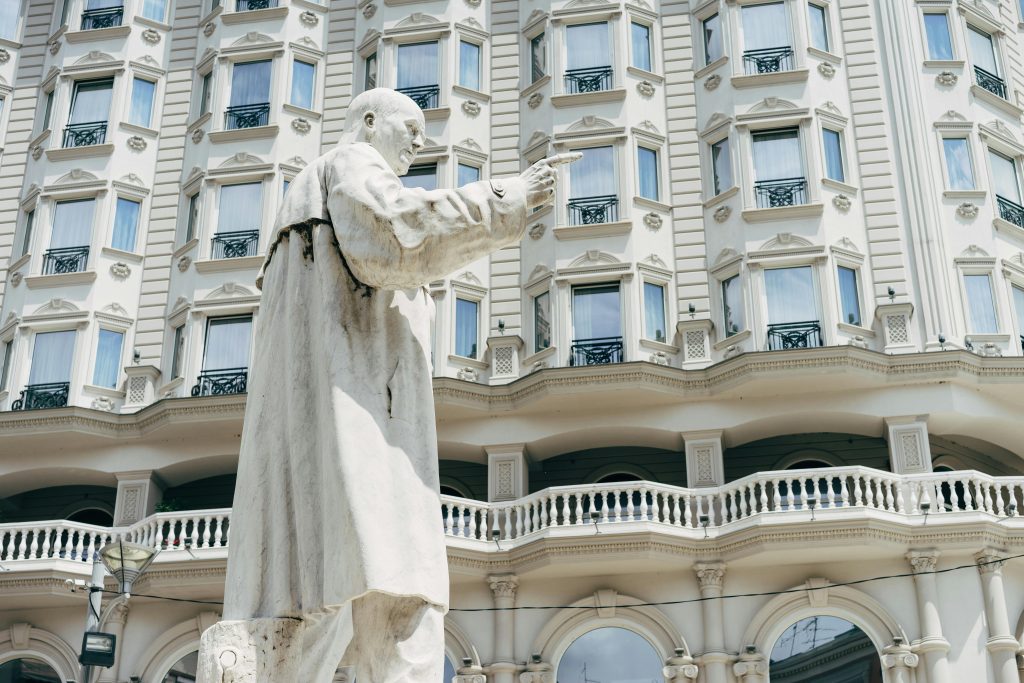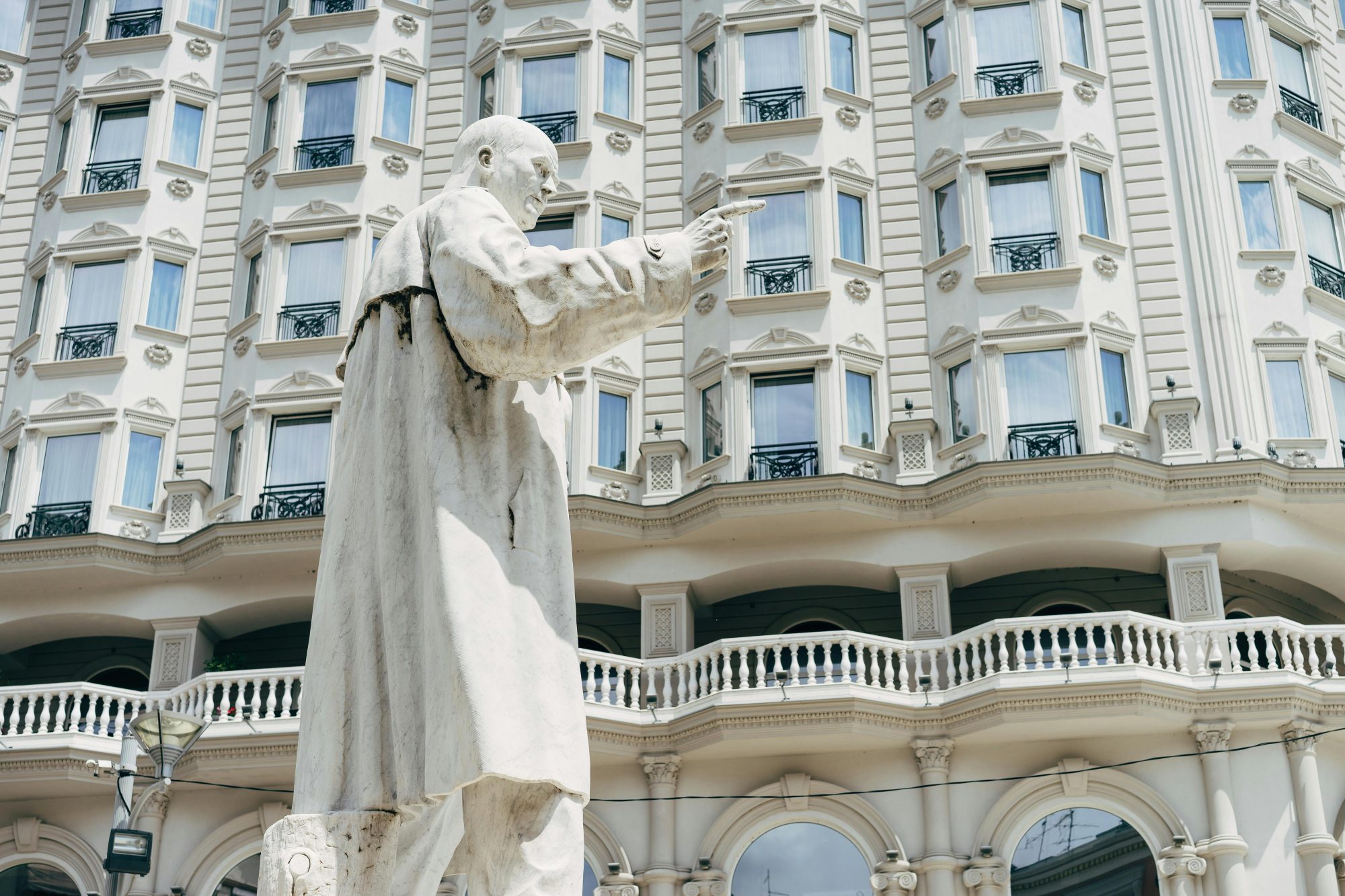
Photo by Markus Winkler: https://www.pexels.com/photo/a-white-concrete-statue-3136900/
Macedonia is a country rich in history, culture, and tradition, and its national holidays reflect the deep roots and pride the nation takes in its heritage. In 2025, Macedonians will celebrate a range of public holidays, each with its own significance. Here’s a look at the national holidays in North Macedonia and what they mean.
1. New Year’s Day (January 1)
New Year’s Day is celebrated with joy and enthusiasm as people across Macedonia welcome the start of a new year. It is a public holiday marked by celebrations, family gatherings, and fireworks. People often take the opportunity to reflect on the past year while making resolutions for the upcoming one.
Meaning: New Year’s Day symbolizes a fresh start, hope, and new beginnings. It’s a time to celebrate with loved ones and usher in the promise of the year ahead.
2. Orthodox Christmas Day (January 7)
For Orthodox Christians, January 7 marks the celebration of Christmas according to the Julian calendar. This holiday is significant as it celebrates the birth of Jesus Christ and is a time for religious observance, family reunions, and traditional feasts.
Meaning: Orthodox Christmas Day is a deeply spiritual day for Macedonians, emphasizing family, faith, and tradition. It is a time for giving, reflection, and honoring religious beliefs.
3. Eid al-Fitr (March 30)
Eid al-Fitr is celebrated by the Muslim community in Macedonia, marking the end of Ramadan, the holy month of fasting. It is a day of joy, prayer, and feasting, where families come together to celebrate the end of a period of reflection and spiritual renewal.
Meaning: Eid al-Fitr symbolizes gratitude, charity, and unity. It is a time to celebrate the successful completion of Ramadan and strengthen bonds with family and community.
4. Orthodox Easter Monday (April 21)
Orthodox Easter Monday is the day after Orthodox Easter, a time for continued celebration of the resurrection of Jesus Christ. While Easter Sunday focuses on the religious observance, Monday is a day for visiting family and friends, as well as enjoying traditional foods.
Meaning: Orthodox Easter Monday is a continuation of the joy and festive spirit of Easter, representing the triumph of life over death, and a reminder of the importance of family and community in Macedonian culture.
5. Labour Day (May 1)
Labour Day, celebrated on May 1, is an international holiday that honors workers and their contributions to society. In Macedonia, it is marked by celebrations and public gatherings, often featuring speeches and events that highlight workers’ rights and achievements.
Meaning: Labour Day is a day to acknowledge the hard work and efforts of the working class, promote social justice, and recognize the importance of fair labor practices.
6. Saints Cyril and Methodius’ Day (May 24)
Saints Cyril and Methodius, two Byzantine missionaries, are credited with creating the Cyrillic alphabet and spreading Christianity to the Slavic peoples. On May 24, Macedonia celebrates their contributions to education, culture, and religion.
Meaning: This day honors the cultural and religious influence of Cyril and Methodius, who are considered patrons of literacy and education. Their legacy continues to shape Macedonian and Slavic cultures to this day.
7. Republic Day (August 2)
Republic Day, celebrated on August 2, marks the anniversary of the Ilinden Uprising in 1903, when Macedonians fought for independence from the Ottoman Empire. The day is a celebration of the nation’s struggle for freedom and the desire for self-determination.
Meaning: Republic Day is a national day of remembrance, symbolizing the courage and sacrifice of those who fought for Macedonia’s independence. It highlights the country’s commitment to freedom and sovereignty.
8. Independence Day (September 8)
Independence Day commemorates Macedonia’s declaration of independence from Yugoslavia in 1991. This day is a celebration of the nation’s newfound freedom and its path to becoming an independent and sovereign state.
Meaning: Independence Day is a day of national pride, reflecting Macedonia’s journey to self-determination. It is a time for citizens to celebrate their country’s independence and reflect on the progress made since 1991.
9. Day of the Macedonian Uprising (October 11)
The Day of the Macedonian Uprising marks the beginning of the 1941 uprising against fascist occupation during World War II. It is a day of remembrance for those who fought for freedom and justice during this tumultuous period in Macedonian history.
Meaning: This day serves as a tribute to the resistance fighters who bravely stood up against the fascist regime, symbolizing courage and the fight for freedom and justice.
10. Day of the Macedonian Revolutionary Struggle (October 23)
This holiday commemorates the Macedonian revolutionary movement, which aimed to achieve independence and liberation from foreign rule. It honors the efforts of revolutionaries in their fight for Macedonian sovereignty.
Meaning: The Day of the Macedonian Revolutionary Struggle highlights the country’s long history of resistance and the ongoing pursuit of freedom. It is a day to honor those who fought for the nation’s independence.
11. Saint Clement of Ohrid Day (December 8)
Saint Clement of Ohrid is a significant figure in Macedonian history, known for his contributions to the development of Christianity in the region. This day is a tribute to his legacy and the cultural and spiritual development he brought to Macedonia.
Meaning: Saint Clement of Ohrid Day celebrates the rich spiritual and cultural heritage of Macedonia. It is a day of reflection on the country’s religious history and the influence of Saint Clement in shaping Macedonian identity.
